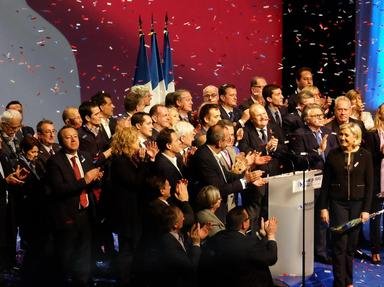Quiz Answer Key and Fun Facts
1. The 2016 US presidential election was held on November 8, 2016 to decide who would succeed the 44th President of the United States. Who was that person?
2. Before the actual elections, most major U.S. political parties (notably the Republican and Democratic parties) hold primaries and caucuses to decide who will be the respective party's nominee. That process began in February 2016, with the first caucus held in which state?
3. While one state holds the first caucus, another state holds the first primary: New Hampshire. Primaries are very similar to the general election: voters cast a ballot secretly. The NH primary was held on February 9th, 2016. For the Democratic and Republican primaries, who was the respective winner of the NH primary?
4. As the colloquially named "primary season" continued, Donald Trump quickly became the front-runner; more and more Republican hopefuls were forced to suspend their campaign. After losing which primary did Marco Rubio suspend his campaign?
5. After winning the Indiana primary in May, Donald Trump became the presumptive Republican nominee. John Kasich was the last Republican to suspend his campaign, although he only won one primary contest. Which was it?
6. Although Trump was declared the presumptive Republican nominee in May, former Secretary of State Hillary Clinton became the presumptive Democratic nominee a month later after heavy competition from Vermont Senator Bernie Sanders. She would later become the official Democratic nominee at the Democratic National Convention (DNC), held in which city?
7. Both the DNC and the Republican National Convention (RNC) were held in the summer. At the RNC, both the president and vice president are formally nominated. Who was the RNC's official vice presidential nominee?
8. Third parties also held a nominating convention to determine their nominees. For example, at the Libertarian National Convention in Orlando, FL, delegates nominated which former state governor for President?
9. Donald Trump and Hillary Clinton would face off against each other in a series of three debates in the latter half of 2016. These were arranged by which organization?
10. On the day of the election, Donald Trump, in a surprising upset, won the most votes in the Electoral College, particularly by flipping most swing states as well as three states that have had streaks of voting for the Democratic candidate. Which was NOT one of them?
Source: Author
omar7812
This quiz was reviewed by FunTrivia editor
stedman before going online.
Any errors found in FunTrivia content are routinely corrected through our feedback system.


